Budget-Friendly Accommodation Options For Backpackers
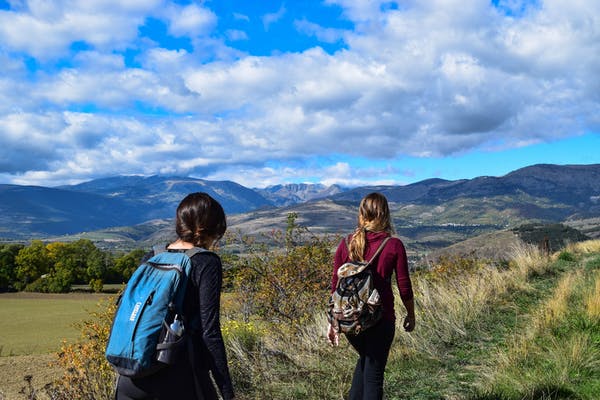
Backpacking is a form of independent, budget-friendly travel that involves carrying everything you need on your back and exploring new places on foot, by bike, or via public transportation.
Backpackers often prioritize experiencing local culture, meeting new people, and getting off the beaten path over luxury accommodations and organized tours.
The roots of backpacking can be traced back to the 1960s and 70s, when young people in Europe and North America began exploring new destinations and cultures on a shoestring budget.
Over time, backpacking has evolved into a popular form of travel, attracting people of all ages and from all over the world.
One of the key advantages of backpacking is the flexibility it offers. Backpackers are free to change their plans at a moment's notice, and they're not tied to a strict itinerary or tour group.
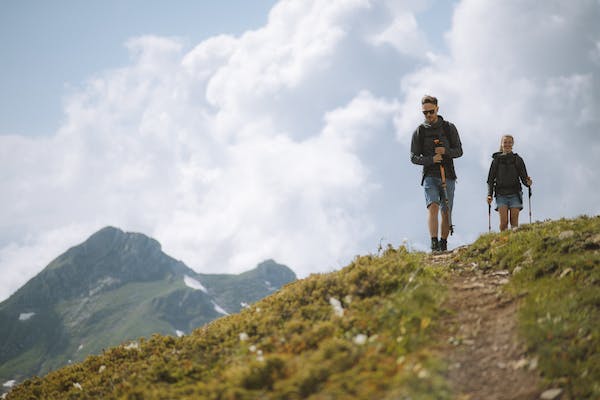
This allows for a more spontaneous and authentic travel experience, as you can immerse yourself in the local culture and connect with locals on a deeper level.
Another advantage of backpacking is the affordability. Backpackers typically travel on a tight budget, staying in hostels, camping, or using couchsurfing platforms to find free accommodation. They may also cook their own meals or eat at local street vendors and markets to save money.
However, backpacking isn't without its challenges. Carrying everything you need on your back can be physically demanding, and navigating unfamiliar cities and cultures can be daunting.
It's important to stay aware of your surroundings and take necessary precautions to stay safe while traveling.
If you're interested in backpacking, there are a few things to keep in mind. First, research your destination thoroughly to ensure you have a good understanding of the local culture, customs, and potential risks.
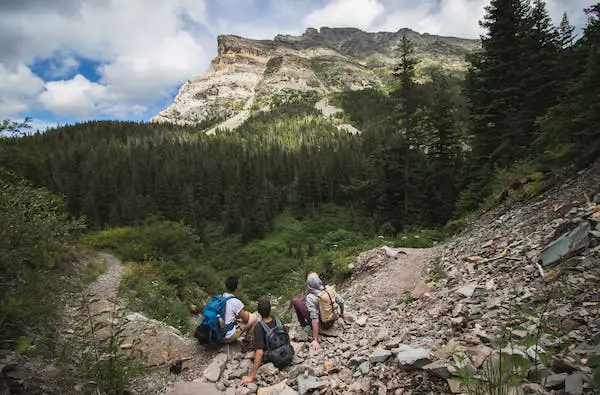
Second, pack light and only bring essential items to minimize the weight on your back. Finally, be open to new experiences and embrace the unexpected - some of the best travel memories come from unexpected adventures and chance encounters.
In conclusion, backpacking is a unique and rewarding form of travel that offers unparalleled flexibility and affordability.
With proper planning and a sense of adventure, backpacking can be a life-changing experience that broadens your horizons and connects you with people and cultures from around the world.
The most significant challenges backpackers face is finding affordable accommodation.
Luckily, there are many budget-friendly options available to backpackers that can help them save money while still enjoying a comfortable stay. Let's explore some of these options.
Hostels
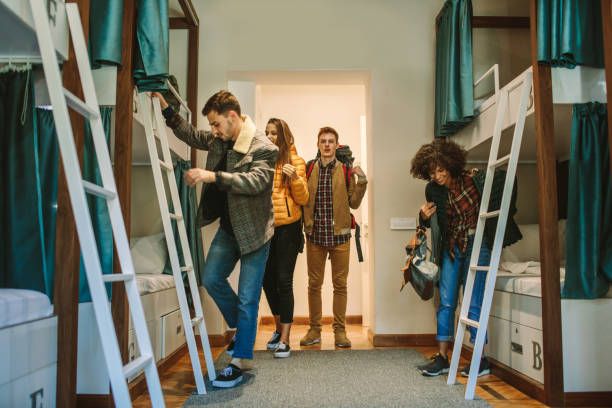
Hostels are a popular choice among backpackers for their affordability and social atmosphere.
Hostels offer shared dormitories with bunk beds and communal spaces such as kitchens, lounges, and outdoor areas. Some hostels also offer private rooms at a higher cost.
One of the main advantages of staying in a hostel is the opportunity to meet other travelers from around the world.
Many hostels organize social events, tours, and activities that allow travelers to connect and make new friends. This can be especially beneficial for solo travelers who may feel lonely on their journey.
In addition to their social atmosphere, hostels are also a great way to save money on accommodation.
Prices vary depending on the location and type of room, but generally, hostels are much cheaper than hotels.
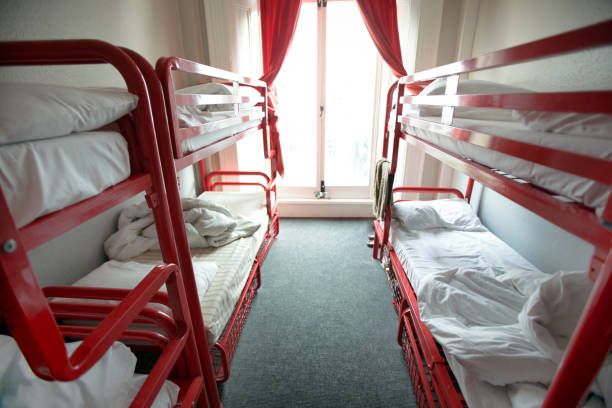
Backpackers can also save money on food by utilizing the hostel's kitchen facilities to cook their own meals.
While hostels are generally safe, it's important to take precautions when staying in shared dormitories. Be sure to lock up your valuables and use a padlock on your locker if provided.
It's also a good idea to research the hostel before booking to ensure it has good reviews and a reputable history.
When choosing a hostel, consider the location, facilities, and reviews from other travelers. It's also a good idea to book in advance during peak travel seasons as hostels can fill up quickly.
Overall, hostels are a great option for backpackers looking for affordable accommodation and a chance to connect with other travelers.
Camping
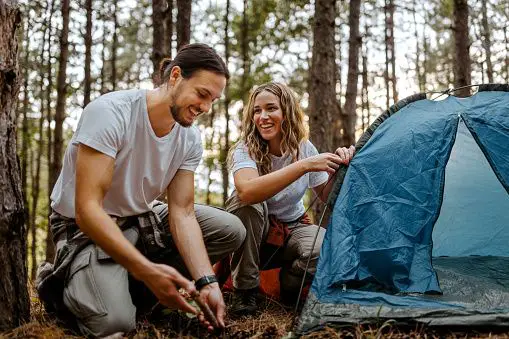
Camping is a great way to experience the outdoors and save money on accommodation.
There are many options for camping, from pitching a tent in a national park to staying in a campsite with facilities such as showers and toilets.
One of the main advantages of camping is the opportunity to connect with nature. Camping allows travelers to immerse themselves in the natural environment, whether it's a forest, beach, or mountain range.
Camping also provides the opportunity to participate in outdoor activities such as hiking, fishing, and swimming.
Camping is generally cheaper than staying in hotels or hostels, and many campsites offer basic facilities such as toilets, showers, and cooking areas. Some campsites also offer electricity and Wi-Fi for an additional fee.
Prices vary depending on the location and type of campsite, but generally, camping is a much cheaper option than other forms of accommodation.
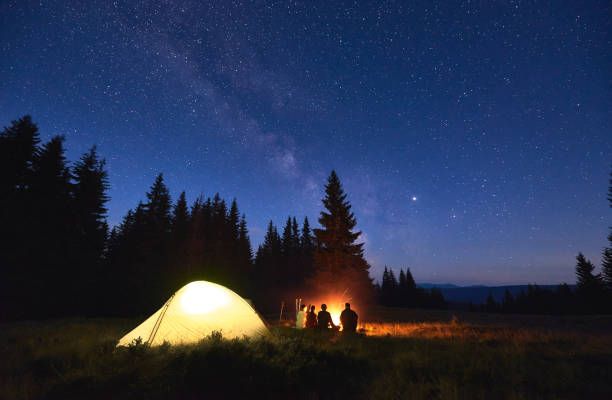
When choosing a campsite, consider the location, facilities, and reviews from other travelers. National parks often have campsites that are affordable and offer beautiful views and access to hiking trails.
Private campsites may offer more facilities such as pools, playgrounds, and convenience stores.
It's important to be prepared when camping, especially if you are in a remote location. Be sure to bring all necessary equipment such as a tent, sleeping bags, cooking supplies, and a first aid kit.
It's also important to research the weather conditions and wildlife in the area to ensure a safe and enjoyable camping experience.
Overall, camping is a great option for backpackers looking to save money on accommodation and connect with nature. With a little preparation and research, camping can be a rewarding and memorable experience.
Couchsurfing
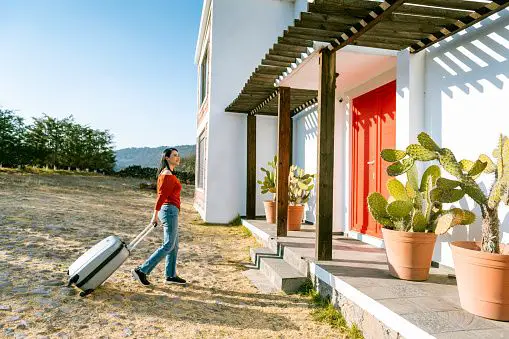
Couchsurfing is a unique and budget-friendly option for backpackers who are looking for a more personal and cultural experience.
Couchsurfing is a platform that connects travelers with hosts who are willing to offer a place to stay in their home for free.
One of the main advantages of couchsurfing is the opportunity to meet locals and experience their way of life.
Hosts are often eager to show travelers around their city and introduce them to their culture and traditions. Couchsurfing can provide a more authentic and immersive travel experience compared to staying in a hotel or hostel.
Couchsurfing is also a great way to save money on accommodation. Since there is no cost for staying with a host, travelers can use their budget for other travel expenses such as food and activities.
However, it is important to note that travelers are expected to show their appreciation by being respectful and courteous to their host, and may also offer to cook a meal or share their own culture.
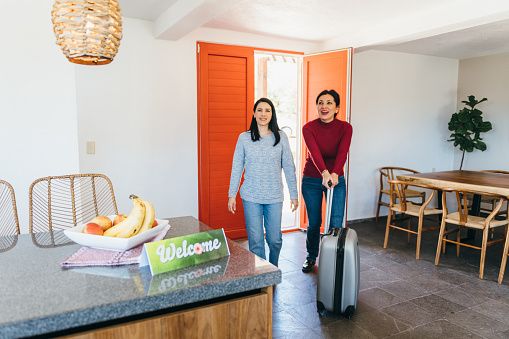
Safety is a concern when it comes to couchsurfing, as travelers are staying in the homes of strangers. Couchsurfing has measures in place to verify both hosts and travelers and provide reviews from past experiences.
It's important to thoroughly research potential hosts and communicate openly about expectations and boundaries before arriving.
When using couchsurfing, it's important to be flexible and open-minded. Hosts may have different expectations or living situations, and it's important to be respectful of their home and lifestyle.
Communication is key to a successful couchsurfing experience, and it's important to keep in touch with your host throughout your stay.
Overall, couchsurfing is a unique and affordable option for backpackers looking for a more personal and cultural travel experience.
It provides the opportunity to meet locals, save money on accommodation, and create lasting connections with people from around the world.
Airbnb
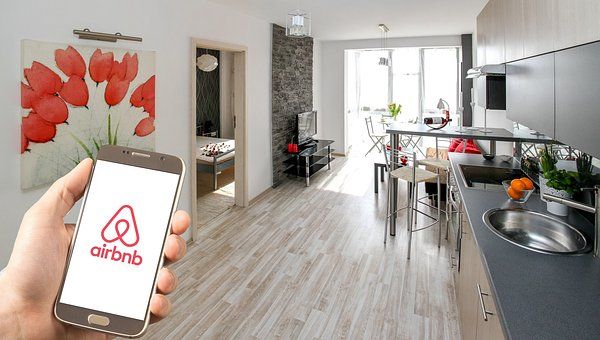
Airbnb is a popular alternative to hotels and hostels for travelers who are looking for affordable and unique accommodation options.
Airbnb offers a platform for hosts to list their homes or properties for short-term rental to travelers.
One of the main advantages of Airbnb is the variety of accommodation options available. Travelers can choose from entire homes or apartments, private rooms, or shared spaces such as a couch or futon.
This allows travelers to find accommodation that suits their budget and preferences.
Airbnb can also be more affordable than hotels, especially for longer stays or for groups. Many Airbnb hosts offer discounts for longer stays, and since most properties have kitchen facilities, travelers can save money on food by cooking their own meals.
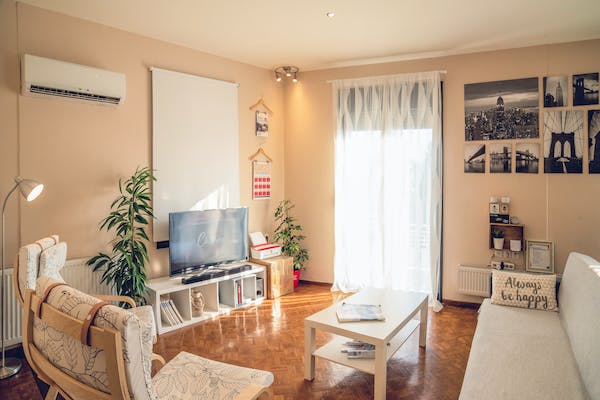
Another advantage of Airbnb is the opportunity to stay in unique and interesting places. From treehouses to houseboats, Airbnb offers a variety of unique and unconventional accommodation options that can add to the overall travel experience.
Safety is a concern when using Airbnb, as travelers are staying in the homes of strangers. Airbnb has measures in place to verify both hosts and guests and provide reviews from past experiences.
It's important to thoroughly research potential hosts and communicate openly about expectations and boundaries before arriving.
When using Airbnb, it's important to be respectful of the host's property and to follow any house rules or guidelines. Communication is key to a successful Airbnb experience, and it's important to keep in touch with the host throughout the stay.
Overall, Airbnb is a great option for backpackers looking for affordable and unique accommodation options. With a little research and communication, Airbnb can provide a comfortable and memorable travel experience.
House-sitting

House-sitting is a unique and budget-friendly option for backpackers who are looking for a longer-term accommodation option.
House-sitting involves taking care of someone's home and pets while they are away in exchange for free accommodation.
One of the main advantages of house-sitting is the opportunity to live in a home and experience a local community.
House-sitting can provide a more authentic and immersive travel experience compared to staying in a hotel or hostel. It also allows travelers to save money on accommodation and use their budget for other travel expenses.
House-sitting can also be a great option for animal lovers, as many homeowners have pets that need care while they are away.
Taking care of pets can provide a sense of companionship and add to the overall travel experience.

To find house-sitting opportunities, there are websites and platforms such as TrustedHousesitters and MindMyHouse that connect house-sitters with homeowners.
It's important to thoroughly research potential house-sitting opportunities and communicate openly with homeowners about expectations and responsibilities.
When house-sitting, it's important to be respectful of the homeowner's property and follow any house rules or guidelines.
Communication is key to a successful house-sitting experience, and it's important to keep in touch with the homeowner throughout the stay.
Overall, house-sitting is a unique and affordable option for backpackers looking for a longer-term accommodation option.
It provides the opportunity to live in a home and experience a local community, while also providing a sense of responsibility and companionship through taking care of pets.
Tips for Saving Money on Accommodation
Book in advance: Booking accommodation in advance can save you a lot of money, especially during peak travel seasons when prices tend to be higher.
Be flexible with your travel dates: Being flexible with your travel dates can allow you to take advantage of last-minute deals and cheaper rates.
Consider staying outside of the city center: Accommodation outside of the city center tends to be cheaper than in the heart of the city. Consider staying in a nearby suburb and taking public transport into the city.
Use loyalty programs: Many hotel chains and booking websites offer loyalty programs that can provide discounts or free nights.
Look for discounts: Many accommodation providers offer discounts for students, seniors, and members of certain organizations. Be sure to ask if any discounts are available when booking.
Conclusion
Backpacking doesn't have to be expensive, and there are plenty of budget-friendly accommodation options available.
Hostels, camping, couchsurfing, Airbnb, and house-sitting are all excellent options for backpackers looking to save money on accommodation.
By following the tips listed above, you can save even more money on your next backpacking adventure.
